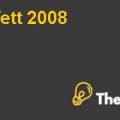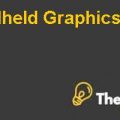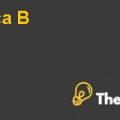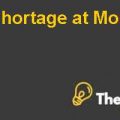Decentralization
- PRO
The company had been using the decentralization approach in the past which proved to be quite successful for the company. By providing freedom to foreign subsidiaries to decide the products they wanted to sell. It also helped the company in attracting appropriate personnel for the company who were willing to apply their experience to improve the overall performance of the company. Apart from this it also saved the company from additional cost and cultural differences that could have been a hurdle in the way of development.
- Cons
However there are certain disadvantages align with the decentralization approach, it can create internal competition and rivalries between the companies and could lead to a dispute on the basis of conflict of interest, making it difficult to control the subsidiaries and the disputes.
Transfer price
Netherland currently have the capacity of producing 600 tons. If the company decides to reject the proposal presented to invest in UK, the capacity is expected to increase to 1000 tons. A benchmark to identify the opportunity cost associated with the decision. If Netherland contains a spare capacity that is not being utilized currently than the opportunity cost will be equal to zero.
| Quantity | Variable cost per ton | Total variable cost |
| 1000 | 1860 | 1860000 |
| 600 | 1900 | 1140000 |
| 720000 | ||
| Minimum transfer price | 1800 |
If the company decided to produce in Netherland than AR-42 will be supplied from Netherland to UK in that case a transfer price need to be decided. Furthermore, at the minimum the transfer price would be $1800.
Transfer price is highly dependent on the strategy to be adopted by management. In case Netherland decided wants to build a strong business foundation it must decide the transfer price to be higher than $1800 and it should be lower than the price being offered in the market. Otherwise the UK Company can face a loss.
The director of the Axeon objected and raided question regarding the assumptions made regarding the manufacturing and the cost required for the manufacturing. The cost related to fixed expanse are already sunk therefore the comparison is made on basis of variable cost. The incremental variable cost is comparatively more relevant while comparing the two proposals for the investment.
| UK Option | Netherlands Option | |
| NPV (8%) | 916000 | $1,252,186 |
| IRR | 20% | 28% |
It can be seen that both of the options are able to generate positive NPV and the impact of the startup complication is not that significant as being assumed by the manager of Axeon. In addition to this the fixed cost will only be irrelevant in the case of Netherland if they had excess capacity for producing the chemical.
Recommendation
After analyzing the situation it is advised that Mr. Van Leuven should increase its current production and should distribute through its subsidiary in UK. He should justify the decision to Ian by giving evidence supported through appropriate facts and figures and the appropriate market research. He must also appreciate Ian for his proposal and the initiative taken by him by rewarding him and acknowledging the achievement. He should also make a reasonable offer to buy their patent and determine a reasonable price that should be beneficial and is in the mutual interest of both the parties.
In order to prevent similar problem in future the company should create a decent balance between decentralization and centralization. It should adopt a centralization approach in case of manufacturing related decisions and should provide the autonomy to the managers when it comes to sales.
Exhibits
Exhibit 1
| Year | 0 | 1 | 2 | 3 | 4 | 5 | 6 | 7 | total |
| equipment | |||||||||
| working capital | -120000 | -20000 | -20000 | ||||||
| operating profit | 76800 | 211200 | 339600 | 339600 | 339600 | 339600 | 339600 | ||
| salvage value | 160000 | ||||||||
| Total | -120000 | 56800 | 191200 | 339600 | 339600 | 339600 | 339600 | 499600 | 1486400 |
| Year | 1 | 2 | 3 | 4 | 5 | 6 | 7 | total | ||
| sales | 200 | 300 | 400 | 400 | 400 | 400 | 400 | 2500 | ||
| variable cost per ton | 1860 | 1860 | 1860 | 1860 | 1860 | 1860 | 1860 | |||
| sales price per ton | 4000 | 3700 | 3700 | 3700 | 3700 | 3700 | 3700 | |||
| variable profit margin per ton | 2140 | 1840 | 1840 | 1840 | 1840 | 1840 | 1840 | |||
| total variable profit | 428000 | 552000 | 736000 | 736000 | 736000 | 736000 | 736000 | 4660000 | ||
| shipping cost | 20000 | 30000 | 40000 | 40000 | 40000 | 40000 | 40000 | 250000 | ||
| import duty | 20000 | 30000 | 40000 | 40000 | 40000 | 40000 | 40000 | 250000 | ||
| promotional cost | 260000 | 140000 | 90000 | 90000 | 90000 | 90000 | 90000 | 850000 | ||
| net operating cash flow | 128000 | 352000 | 566000 | 566000 | 566000 | 566000 | 566000 | 3310000 | ||
| Tax (40'%) | 51200 | 140800 | 226400 | 226400 | 226400 | 226400 | 226400 | 1324000 | ||
| Net cash flow after tax | 76800 | 211200 | 339600 | 339600 | 339600 | 339600 | 339600 | 1986000 |
.......................
This is just a sample partical work. Please place the order on the website to get your own originally done case solution.












